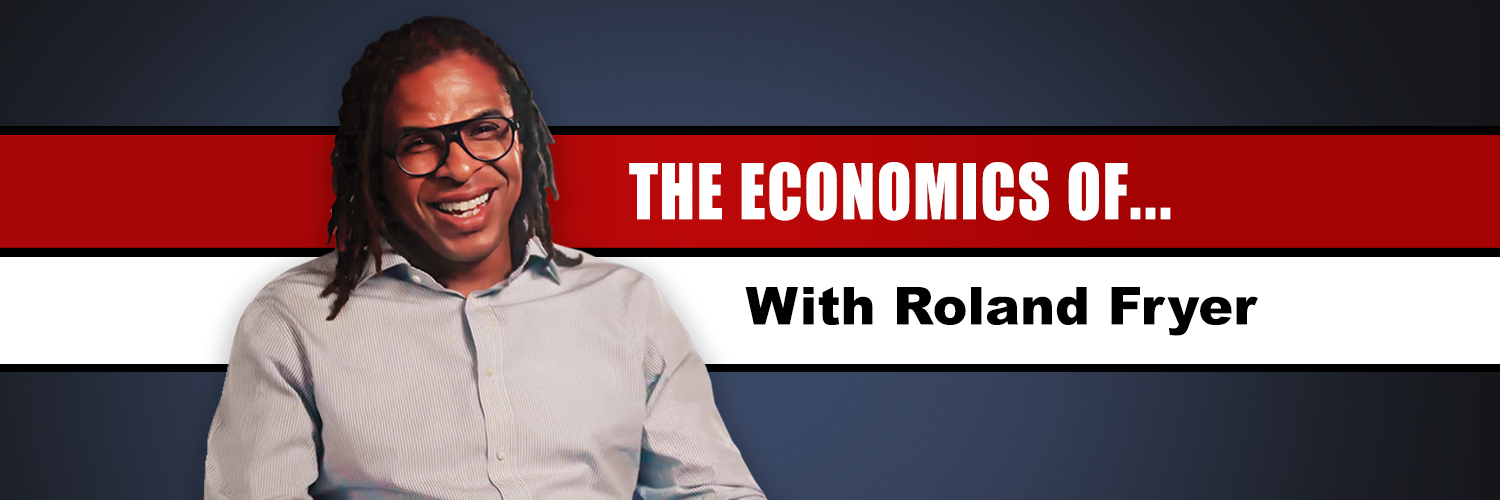
Free To Choose
@FreeToChooseNet
Free To Choose® Network is a global media 501(c)(3) nonprofit that brought you Milton Friedman’s original 1980 10-part television series, Free To Choose.
"When we came here to the United States, we were looking for freedom, and we were looking for a better future. And that's the pursuit of happiness." These aren't just words from 1776—they're the reason millions still choose America today. In "We Hold These Truths," immigrants…
"We hold these truths to be self-evident, that all men are created equal, that they are endowed by their Creator with certain unalienable Rights, that among these are Life, Liberty and the pursuit of Happiness." 249 years ago today, these 35 words changed everything. They…

Critics love to paint capitalism as selfish and cold. Meanwhile, every other economic system has a perfect track record... of failure. Milton Friedman cuts through the misconceptions to reveal an inconvenient truth: the system that supposedly celebrates "greed" is the only one…
What did the founders really mean by “all men are created equal”? “The society that puts equality before freedom will end up with neither. The society that puts freedom before equality will end up with a great measure of both.” -Milton Friedman
Pop quiz: What's the opposite of a monopoly? If you said "monopsony," congratulations—you just unlocked a new vocabulary word that describes some of the most potent market distortions in the economy. But how could a free market sustain an entire industry with only one buyer?…

Hayek understood what many still miss today: prosperity and freedom aren't separate goals—they're inseparable partners. When people are free to choose, innovate, and trade, they don't just create wealth. They create the conditions where everyone can flourish on their own terms.…

Every skyscraper, every bank, every factory traces back to 19th century visionaries who arrived with nothing but built everything. Watch Milton talk about the debt we owe to the economic progress and development of the 19th century.
Intentions can lie. Results can't. Milton Friedman reminds us that economic systems are just tools—and like any tool, what matters isn't the label on the box, but whether it actually works. You can call your hammer "The Ultimate Problem Solver," but if it keeps bending nails,…
Recorded in 2002, Dennis McCuistion, former Clinical Professor of Corporate Governance and Executive Director of the Institute for Excellence in Corporate Governance at the University of Texas at Dallas interviews Jim Lehrer, anchor and executive editor of PBS's The NewsHour with…

When profits are private but losses go to taxpayers, is that really a free market or is it corporate welfare? What did Milton Friedman say about economic freedom?
Building a $32.5 billion company from a "crazy" idea? Melanie Perkins did exactly that with Canva. She faced over 100 rejections from investors, started with a team that could fit around one table, and now serves 100+ million users monthly. Her secret wasn't luck—it was turning…

The numbers don't lie. When Thomas Sowell talks about capitalism lifting people out of poverty, he's not speaking in abstractions. In the last 25 years alone, hundreds of millions have climbed from extreme poverty—the largest movement out of destitution in human history. When…

What if the free market isn't the enemy of charity - but its greatest ally?
Leave it to Milton Friedman to find the silver lining in a Polish joke about economic systems. In a world where capitalism is often painted as the villain, sometimes the best defense comes from unexpected places, like humor that accidentally reveals the truth about human nature…
Why does the welfare state struggle to achieve its goals? It comes down to human nature and incentives. “Trying to do good with other people’s money simply has not worked.” -Milton Friedman
How much money do we spend? What should we spend it on? Everybody has to make choices, from deciding whether those tomatoes go into spaghetti sauce or salsa all the way to which government programs get funding. This is because we live in a world of finite resources. Scarcity…

Walter Williams understood that prosperity isn't an accident—it's the result of getting the fundamentals right. When people can own property, trade freely, and trust that agreements will be honored, ordinary individuals become wealth creators. These aren't just economic…

As the fireworks fade and Independence Day becomes a memory, Judge Ginsburg reminds us that July 4th isn't just about celebrating what we've achieved—it's about recommitting to the journey ahead. In "We Hold These Truths," Ginsburg explores how the Declaration of Independence…
On July 4, 1776, America didn't just declare independence—it shared the world's blueprint for freedom. Since then, more than 100 countries have issued their own declarations of independence, many echoing the revolutionary words first penned in Philadelphia. From Europe to Hong…